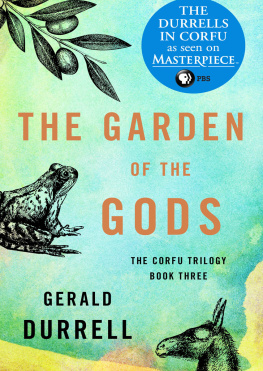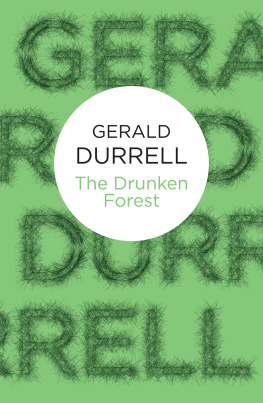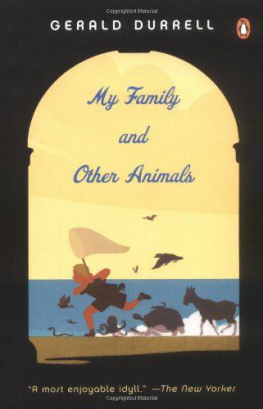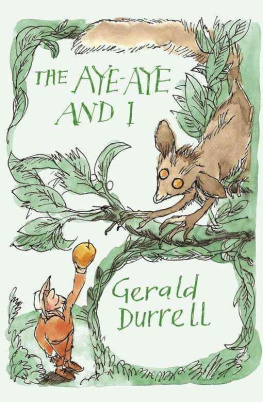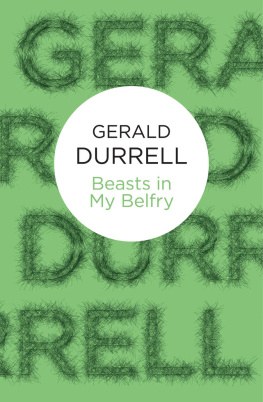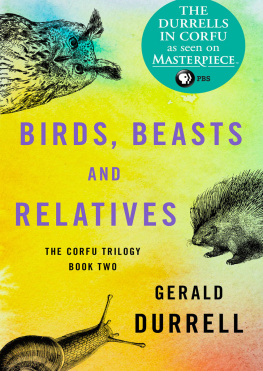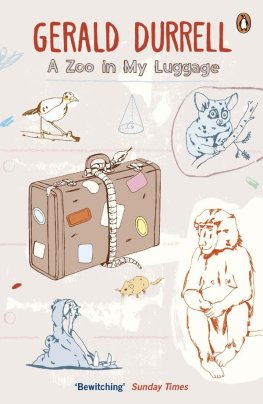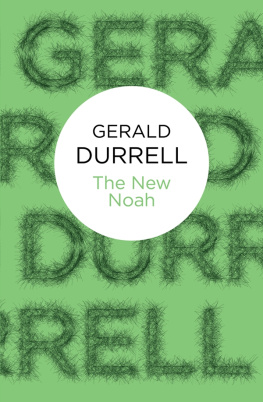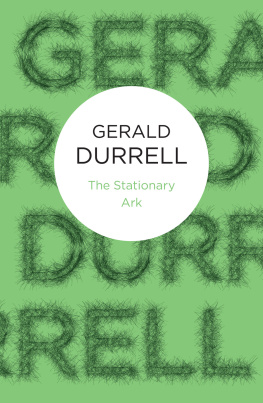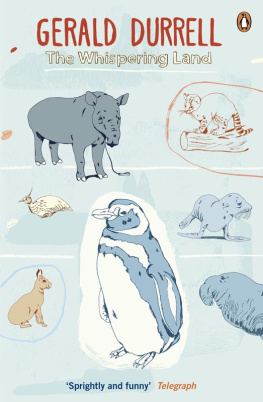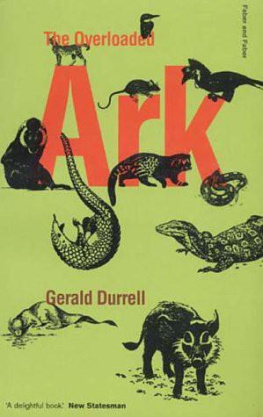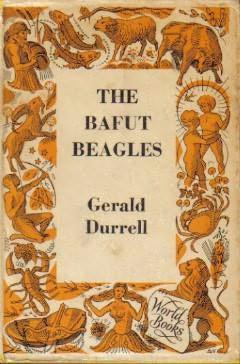Introduction
Be fruitful and multiply and replenish the earth and subdue it and have dominion over the fish of the sea and over the fowl of the air and over every living thing that moveth upon the earth.
GENESIS : 28
And I brought you into a plentiful country, to eat the fruit thereof and the goodness thereof; but when ye entered, ye defiled my land, and made mine heritage an abomination.
JEREMIAH 1:6
This is a book about zoos in general, and one zoo in particular the one I started on the Island of Jersey.
It may be that those intimately connected with zoos may think I have been too forthright. This is because I am anxious for zoos to go on and prosper and do better and more valuable work, not dwindle and become extinct because of their own inertia and public criticism. In many aspects that I have dealt with in this book, I have, in fact, erred on the side of leniency.
However, to those who think I have been too harsh, let me issue an open invitation to come to Jersey and criticize what we are doing. We thrive on criticism and (we hope) learn from it.
Finally, may I say this? I have attempted to deal with what I consider to be a serious subject seriously, but I have tried to leaven the loaf with anecdotes that illustrate my points and, at the same time, show the amusing side of my work. If anyone objects to what may seem, on the surface, a frivolous attitude, I can only point out that if I did not find the antics of myself and my fellow animals from politicians to peacocks irresistibly comic, I would not have the heart to do what I am doing. The present world situation, biologically speaking, is so serious, and the future looks so dark, that one needs the fireflies of humour to light ones way.
1. The Launching
All examples included in this book are presented with the same basic reasoning: when man continues to destroy nature, he saws off the very branch on which he sits since the rational protection of nature is at the same time the protection of mankind.
VINZENZ ZISWILER Extinct and Vanishing Animals
The fundamental limitation of our western technological culture is that it now possesses the means to cause wholesale destruction of life over vast areas in very short periods of time, but does not have an understanding of the multifarious side effects.
DR S. R. EYRE Conservation and Productivity
Zoo biology is still a very young science and today many zoos are still run without the faintest idea that it exists. In some places no thought is given as to what the present role of a zoo either is or should be.
HEINI HEDIGER Man and Animal in the Zoo
He that condemneth small things shall fall by little and little.
APOCRYPHA The Wisdom of Solomon
One way and another, I have been associated with zoos throughout my life. I was smitten by what can only be called zoomania at the very early age of two, when my family inhabited a town somewhere in the centre of India, a town which boasted a zoo of sorts. Twice a day, when asked by my long-suffering ayah where I wanted to go for my walk, I would drag her round the rows of odoriferous cages with their moth-eaten exhibits. Any attempt on her part to change this ritual, and my screams of rage could be heard as far south as Bombay and as far north as the Nepalese border. In view of this, it was not altogether surprising to learn from my mother that the first word that I could enunciate with any clarity was zoo.
I have been saying it ever since in alternating tones of delight and despair.
Naturally, this early experience created in me a desire to have my own zoo. So, from the age of two to six, I practised assiduously for the day when I would have my own collection by assembling everything, from minnows to woodlice, which inhabited my bedroom and my person in ever-increasing quantities. At this point we moved to Greece, where I lived a life of great freedom and could indulge my passion for keeping and studying wild animals. Everything, from eagle owls to scorpions, was grist to my mill. Later, returning to England, I realized that if I was ever to acquire a zoo of my own, I would need some experience in dealing with larger animals such as lions, buffalos and giraffe, which could not in spite of my enthusiasm be conveniently housed in the back garden, my bedroom, nor, indeed, about my person. At this point I applied for, and was lucky enough to get, a job at Whipsnade Zoo, the Zoological Society of Londons country estate in Bedfordshire. I was a student keeper, which grandiose title meant that I was an odd-job boy, who was shoved on to any section that needed a helping hand with the dirty work. In many ways it was ideal training, for it taught me (if nothing else) that, for the most part, animal work is hard, dirty and very unglamorous, but it gave me contact with a host of lovely creatures, from emus to elephants. On leaving Whipsnade, I spent the next ten years animal collecting: financing and leading ten major expeditions to various parts of the world to acquire animals for zoological gardens.
It was while I was at Whipsnade and during my first four expeditions that I began to have doubts about zoos. Not doubts about the necessity for having them, for I believed (and still believe) that zoos are very important institutions. My doubts were about the way that some zoos were run and the way that the majority of them were orientated. Until I had gone to Whipsnade, zoo-maniac that I was, I felt that to criticize any zoo, however lightly, was asking to be struck down by a bolt of lightning straight from heaven. But my experiences at Whipsnade and later, in collecting animals for zoos (thus visiting a great many of them), gave me an ever-growing sense of disquiet. As my experience grew, I came to the conclusion that there was a great deal to be criticized in the average zoo and, indeed, a lot that needed to be criticized if zoos, as the valuable institutions that I felt them to be, were to progress out of the stagnant state into which the greater majority appeared to have fallen, or from which they had never succeeded in emerging since their inception. However, it is simplicity itself to criticize a tightrope walker if you have never been aloft yourself and so I became even more determined to start my own zoo.
The low ebb to which zoos had allowed themselves to fall in public estimation was made apparent by the reactions I got when people found out what I intended to do. If I had informed them that I was going to start a plastic bottle factory, a pop group, a strip club or something else of such obvious benefit to mankind, they would doubtless have been deeply sympathetic. But a







